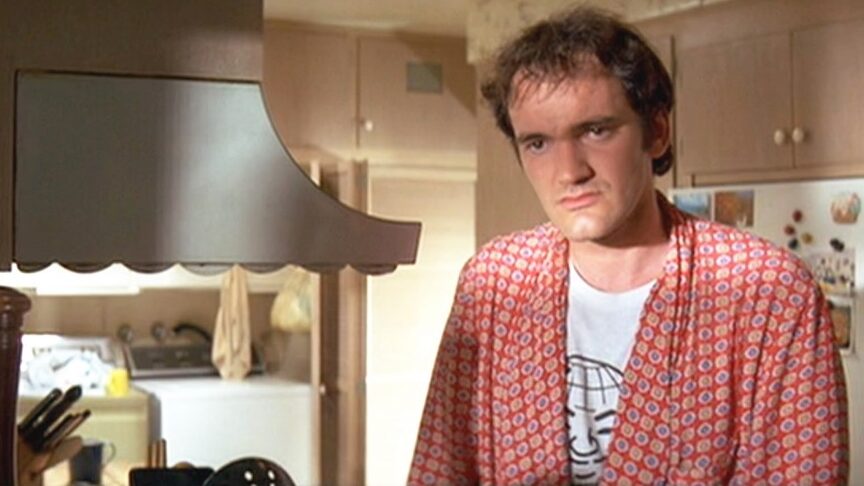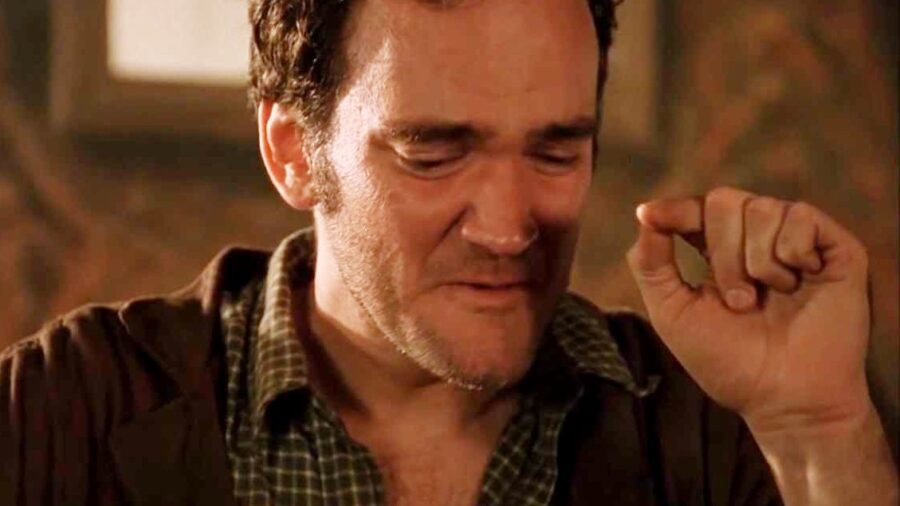Quentin Tarantino Hates Trigger Warnings
Quentin Tarantino thinks if someone's offended by a movie, it just means that it wasn't for them.

If you are easily offended, then this is your trigger warning that you will most likely be offended by the content of this article. The famously outspoken director Quentin Tarantino recently shared that he hates when trigger warnings are shown before movies, according to World of Reel. He feels that a movie is simply a movie and that if you feel offended by it, then that’s your own problem.
To clarify, a trigger warning is a statement made at the beginning of content (like a movie, book, podcast, etc) that lets people know that there will be distressing material ahead, so they better buckle up. Oftentimes this refers to topics around suicide, sexual assault, or grief. But it can be used for anything deemed offensive, which is certainly very broad nowadays.
The term first came about in the 1990s when women began using trigger warnings on online message boards to warn others about upcoming offensive topics like eating disorders, self-harm, and rape.
In his recent interview, Quentin Tarantino shared that he does not like the word “offended,” which has become a very mainstream term, especially in the cinematic world. He explains that if someone says they are “offended” by a movie, they must have a “very narrow mind.”
Based on this statement, a person should be able to watch any film with an open mind and know that it might not be the right film for them, but that’s okay. If the movie doesn’t align with their morals and ethics, it doesn’t necessarily mean that it’s offensive but that it’s just not the right movie for them.
Quentin Tarantino, the ultimate Hollywood insider who is known for pushing the boundaries of cinema with violence, profanity, and racism, says that “Art is no offense.”

Despite his hatred for the word “offended,” Quentin Tarantino shared that a film that came out 10 years ago did strike a nerve with him and made him feel offended. While he did not disclose which movie it was, he shared that he thought the movie was racist and even wanted to punch the director because of it.
However, after taking a breather, he realized that his issue with the movie was his own problem, not the film, and said that “it’s just a fu***** movie, man.”
In the director’s defense, trigger warnings do not seem all that helpful for audiences who are easily offended. While the warning does help viewers avoid watching or listening to content that they are sensitive to, it still uses the word that will trigger them. For instance, if someone wants to avoid watching movies that involve suicide, they still must read the word “suicide” on the trigger warning, which ironically could upset them.
Whatever your stance is on the topic, it’s safe to say that Quentin Tarantino’s tenth and final film, The Movie Critic, will not have any trigger warnings before it rolls on the big screen. The dramatic film about a film critic in the 70s is currently in production and set to be released in theaters sometime in 2024.












